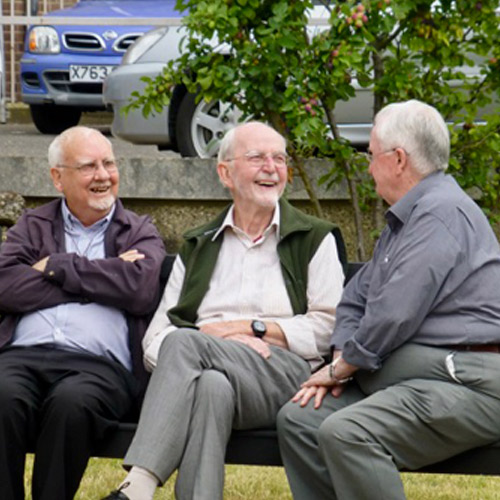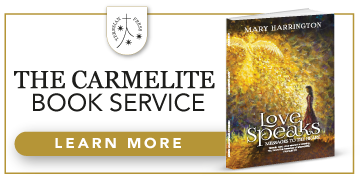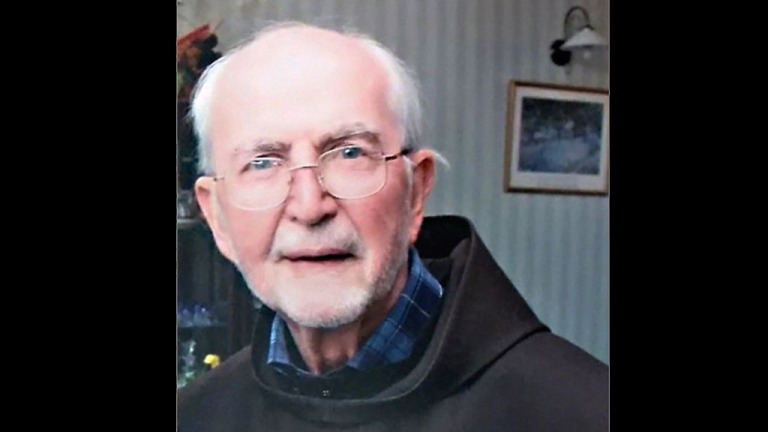Sorry, no records were found. Please adjust your search criteria and try again.
Sorry, unable to load the Maps API.
The OFM Franciscans of Great Britain and Ireland have announced that January “we sadly lost our brother Br Andrew McMahon OFM.”
Bt Andrew was born in Highvalleyfield, Fife, on 12th November 1935.
HOMILY AT FR ANDREW McMAHON’S FUNERAL
Fr Michael Copps OFM preached the homily in the chapel of Park Place Retreat Centre, Hampshire on February 5th 2024.
I got to know Andrew in his last year so Adrian Faupel will talk about his early life and his involvement in this area of Hampshire. However I was here for opening of the St Dismas Centre in Southampton. On that occasion the Catholic Bishop of Liverpool, Derek Worlock, and David Shepherd, the Anglican Bishop of Liverpool, came to open the Centre. I vividly remember a story David told. David was a County cricketer and played for England. He told a story about the groundsman at the County Cricket Ground at Northlands Road in Southampton. The groundsman would sit in the pavilion while Hampshire were batting but when the ninth wicket fell, he would get up and go round the back of the pavilion and the heavy roller could be heard starting up. When asked why he did this his answer was, ‘He won’t be long.’ David told the story to make the comparison between the eleventh man in the batting order and the attitude many took to the men whom the Dismas Centre would serve; ex-prisoners and alcoholics. Andrew and his staff would try to turn around the lives of men who many had written off as hopeless. They were dealing with men who were eleventh in the batting order.
Andrew was a strong man physically and mentally. As a student friar he played football for the village of East Bergholt. The other players called him ‘Big Mac’, he was centre forward. His team mates told me that the attacking plan was, ‘Big Mac he charge down the middle and we try to bounce the ball off him.’ As a child in Coventry which was bombed heavily, he was missing from the air raid shelter and the family were scared stiff. After the raid he was found safe as he had gone off on his tricycle to another shelter. The family comment was he always went his own way. When he joined the Order he adopted the ideals of St Francis but went his own way. Some people call our Order, ‘The Greatest Disorder in the Church.’
Andrew was drawn to the eleventh man in the batting order which in the life of St Francis had been the leper whom he embraced: the one discarded. In his work in Dismas, as a caring man he must have heard awful stories of people unloved and discarded and this would have troubled him. My experience of listening to such stories is that there is a danger of being sucked into the despair the person is experiencing. Andrew had the strength not to let his sympathy effect the discipline of the house, which had to be a dry house for everyone’s sake.
In the Gospel we read (John 6: 53-69;) St Peter says, ‘Who shall we go to?’ It seems he also felt the emptiness of life. How he too could be discarded; a feeling that he had to be rescued, and he was rescued by coming to know Jesus Christ, Jesus who in the Eucharist gives His flesh and blood; thus giving us life in Him.
I got to know Andrew in the last years of his life. The puzzle I had was that he was always complaining about being lonely. I would be sitting with him in his little wooden house and the phone would be going regularly with people arranging to come and see him. In conversation he would tell me about people who had come to see him or who had taken him out. The men from the IT business next door were going by constantly and he would go to them to fix his tablet which he was always messing up. The sisters were just along the way and he would go for meal with them and his doctor Deirdre would call in in the evening. I thought to myself, how can he be lonely with all these good loving people around him? I thought this cannot be a loneliness that visits can cure. I thought that maybe the stories of the men at Dismas, the many people who came to him for counselling had stirred up the eleventh batsman in him. The knowledge that for all the help we get we are essentially on our own. We have to respond to our Maker: no-one can do it for us. He was feeling his personal vulnerability and responsibility. Faith is never a steady state in life; it has to be exercised all the time. Andrew was always seeking to develop in Christ by prayer, reading so his steady state was his constant search for Christ. He understood himself as a sinner in need of rescue.
Now he has been found by Christ. May he rest in peace.

































